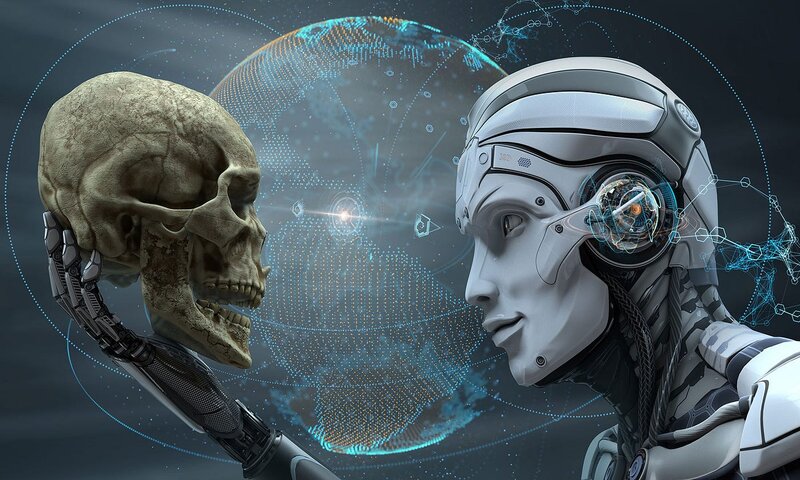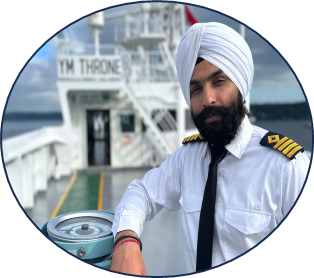Navigating the Risks: How AI Poses Threats to the Maritime Industry

Artificial Intelligence (AI) has undeniably steered various industries towards unprecedented advancements and efficiencies. However, as this cutting-edge technology permeates the maritime field, it brings forth a spectrum of potential threats that demand careful consideration. While AI holds the promise of transforming maritime operations, its integration also poses significant challenges and risks that merit thorough examination.
Risk Factors:
Cybersecurity Vulnerabilities: The integration of AI into maritime systems introduces new vulnerabilities to cyber threats. Ships equipped with AI-driven navigation, communication, and control systems become potential targets for cyberattacks. Malicious actors could exploit these systems, compromising vessel safety, navigation, and even causing environmental disasters by manipulating critical ship functions.
Reliance on Automated Systems: As AI becomes more involved in navigation and operational decisions, there's a concern about overreliance on automated systems. Human operators may become complacent or lack the necessary skills to intervene effectively in case of AI system failures or unexpected situations, potentially leading to accidents or operational disruptions.
Data Integrity and Bias: AI relies heavily on data for learning and decision-making. If the data used to train AI models in the maritime industry is incomplete, biased, or inaccurate, it could lead to flawed decision-making. Inaccurate predictions or recommendations by AI systems in navigation or route planning could result in costly errors or safety hazards.
Legal and Ethical Dilemmas: The implementation of AI in maritime operations raises complex legal and ethical questions. Determining liability in case of accidents involving AI-controlled vessels presents challenges. Additionally, ethical considerations regarding the use of AI in potentially hazardous situations at sea require careful regulation and oversight.
Disruption of Maritime Employment: Automation driven by AI has the potential to disrupt traditional maritime employment. While AI streamlines operations, it also threatens certain job roles, leading to workforce displacement and the need for retraining or reskilling of maritime professionals.
Safety and Unforeseen Situations: AI systems are trained based on historical data, which might not encompass all potential scenarios. In unpredictable or unprecedented situations, AI systems may struggle to make accurate decisions, potentially compromising safety and leading to unforeseen challenges for maritime operations.
Mitigating the Threats:
Addressing the risks posed by AI in the maritime field requires a multifaceted approach:
Robust Cybersecurity Measures: Implementing robust cybersecurity protocols and regular assessments are crucial to safeguard maritime systems against cyber threats.
Human-AI Collaboration: Promoting human oversight and ensuring that maritime professionals are adequately trained to interact with AI systems can mitigate overreliance and enhance safety.
Ethical AI Development: Prioritizing ethical considerations in AI development, including unbiased data use and transparency in decision-making, is vital to ensure responsible AI deployment in maritime operations.
Regulatory Frameworks: Developing comprehensive regulations that address AI-specific challenges in the maritime industry is essential to establish accountability and liability guidelines.
Continued Innovation and Adaptation: Encouraging ongoing innovation and adaptation to new technologies while balancing the human element is key to navigating the evolving landscape of AI in maritime operations.
Conclusion:
In conclusion, the integration of Artificial Intelligence in maritime operations holds immense potential for advancement, but it also introduces a spectrum of challenges. From cybersecurity vulnerabilities and potential disruptions to ethical dilemmas and safety concerns, a careful and comprehensive approach is necessary. Mitigating these threats requires robust cybersecurity measures, promoting human-AI collaboration, prioritizing ethical AI development, establishing regulatory frameworks, and fostering continued innovation. Striking a balance between harnessing the benefits of AI and addressing its associated risks is imperative for the responsible and sustainable evolution of the maritime industry

Capt.Tanvir Singh
I am an experienced Master Mariner. Have sailed in container ships ranging from 1500 - 14100 TEU through various ranks for the last 13 years. I am skilled at solving problems and resolving interpersonal conflicts. have management skils and can encourage team building. Have been a go getter and encouraged and punctuality in work place. Have demonstrated skills in implementing safety and security measures.
Leave a comment
View more
Give your career a boost with S&B professional services.
CV Prep/EvaluationMore Jobs
Ship management
Mumbai
Electrical Superintendent
Ports and Pilotage
Mombasa, Kenya
AGM / DGM
Agency and Logistics
Dubai
Director Operations
Interview Prep/Mentoring
Find your polestar with the host of experts available on our platform
Know more

